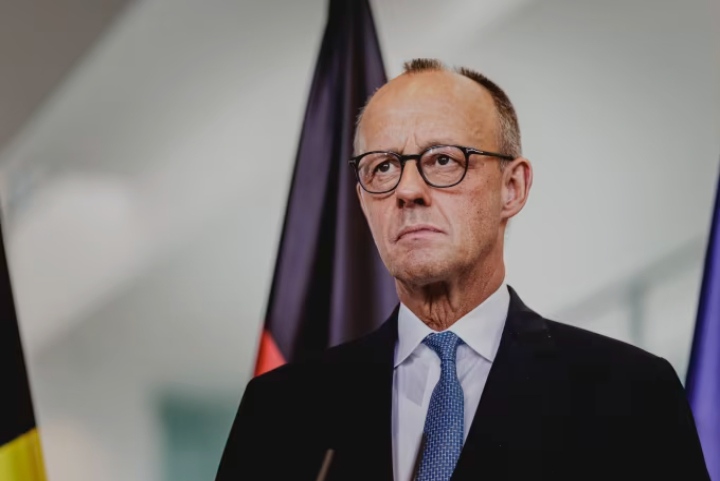German Chancellor Friedrich Merz is calling on the European Union to redirect $160 billion of frozen Russian assets toward Ukraine, a significant change in policy for Berlin.
Merz argued in an op-ed for the Financial Times that this move is essential for Ukraine to show “greater staying power” in the war, which he hopes will eventually force the Kremlin to the negotiating table.

Previously, Berlin had cited legal and financial concerns for its reluctance to use these funds. However, Merz is now urging the EU to “circumvent these problems,” stating, “This must not hold us back.” He aims to mobilize financial resources on a scale that will “secure Ukraine’s military resilience for several years.”
Out of approximately $300 billion in Russian Central Bank assets frozen globally, about $229 billion is held within the European Union, primarily by the Belgian clearing house, Euroclear.

Merz proposes that the $160 billion be provided to Kyiv as an interest-free loan. This loan would only be “repaid once Russia has compensated Ukraine for the damage” caused by the war. Russia has strongly criticized the potential seizure of its assets, warning last week that such a move “will not go unanswered.”
Crucially, Merz’s plan stipulates that Ukraine could only use the funds for the procurement of weapons, not for general budgetary needs. Payments would be made in instalments, with EU states and Ukraine jointly deciding “which material is procured.” Merz suggested this mechanism would also help “strengthen and expand” Europe’s own defense industry.


Germany currently ranks second only to the United States in the amount of military and financial aid provided to Ukraine since the war began.
The Chancellor plans to advocate for this proposal at an informal EU meeting in Copenhagen next week, with the goal of securing a mandate at the EU summit at the end of October. He hopes for “unanimous” approval or at least a “large majority,” sending a clear message to EU members Viktor Orban (Hungary) and Robert Fico (Slovakia), who maintain close ties with Russian President Vladimir Putin.




